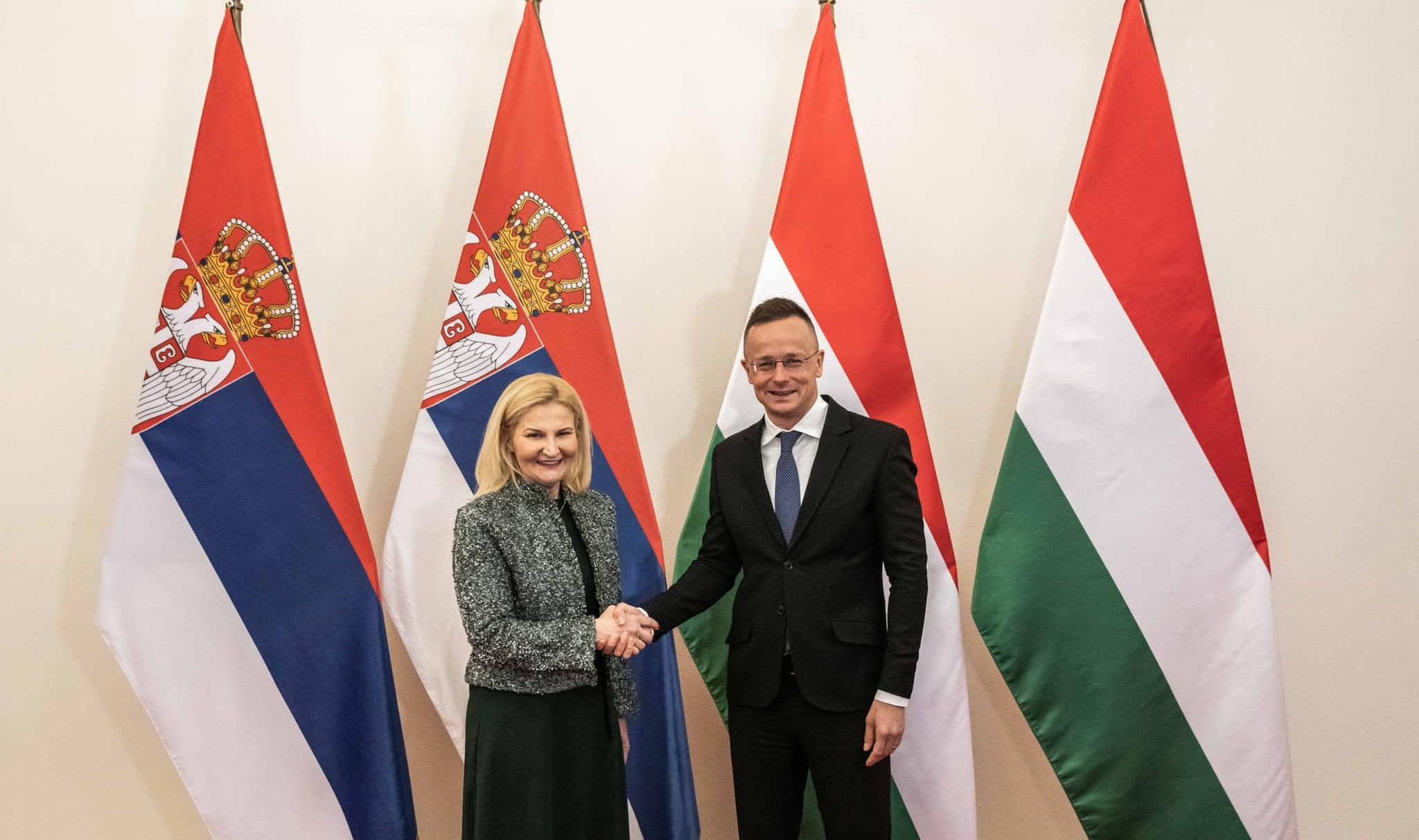
Péter Szijjártó thinks that just like Hungary, the European Union could benefit greatly from close cooperation with Serbia.Continue reading

Hungary and Serbia are preparing the construction of a new oil pipeline to strengthen security of supply, and negotiations are underway on the project, on which an agreement could be signed in June, Foreign Minister Péter Szijjártó announced on Thursday.
At a joint press conference with Serbian Energy Minister Dubravka Dedovic in Budapest, Péter Szijjártó said that the war in Ukraine has left Europe facing serious energy supply challenges and experts say it will be extremely difficult to prepare for next winter. He pointed out that 60 billion cubic meters less of Russian gas will be available on the European market than last year, that demand has increased significantly due to the reopening of the Chinese economy, and that LNG capacities have not yet been built up to the extent needed to replace the shortfall.
On the current negotiations, he stressed that
the Hungarian-Serbian strategic energy cooperation is one of the guarantees that Hungary’s energy supply will be secure in the coming period.”
Szijjártó underlined that 9-15 million cubic meters of natural gas per day arrive in Hungary from Serbia, a reliable transit country, via the TurkStream pipeline, and that the neighboring country is also one of the possible routes for the quantities of gas that Hungary wants to buy from Azerbaijan.
Hungary is therefore interested in the development of the internal network in Serbia, and considers it a European issue and therefore expects the European Union to finance all infrastructure developments in the region that will allow Central Europe to have access to alternative sources, the minister added.
He said that a framework agreement had been reached on the storage of 500 million cubic meters of natural gas for Serbia in domestic storage facilities in Hungary this year. In addition, Hungarian electricity supply company MVM and Srbijagas will soon set up a joint venture to carry out joint gas trading activities, thereby strengthening the presence of the two countries in the Central European energy market.
Péter Szijjártó then announced that
Hungary and Serbia are preparing the construction of a new oil pipeline between Algyő, Hungary, and Novi Sad, Serbia, which will contribute to improving the security of supply for both states.
He said that negotiations between Hungarian oil and gas company MOL and Serbian oil company Transnafta on the project are ongoing. The contract on this could be signed at the Serbian-Hungarian government summit scheduled for June, he added.
The foreign minister also welcomed the fact that the construction of the new cross-border electricity pipeline, which will double the transport capacity and is expected to be completed by 2028, is on schedule, with the next task being to designate the crossing point. “The close Serbian-Hungarian energy cooperation provides great security for both sides. This is one of the most successful areas of our strategic partnership, which has clearly produced many important results so far,” he concluded.
Featured photo via MTI/Lakatos Péter